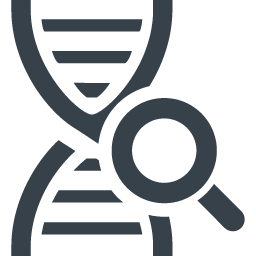 CEP128 gene related symptoms and diseases
CEP128 gene related symptoms and diseases
All the information presented here about the CEP128 gene and its related diseases, symptoms, and test panels has been aggregated from the following public sources: NCBIGENE,HGNC, Mendelian Rare Disease Search Engine.
Top 5 symptoms and clinical features associated to CEP128 gene
| Symptoms // Phenotype | % Cases |
|---|---|
| Intellectual disability | Very Common - Between 80% and 100% cases |
| Abnormal eyelid morphology | Very Common - Between 80% and 100% cases |
| Abnormality of the hair | Very Common - Between 80% and 100% cases |
| Reduced tendon reflexes | Very Common - Between 80% and 100% cases |
| Oligodontia | Very Common - Between 80% and 100% cases |
Other less frequent symptoms and clinical features
Patients with CEP128 gene alterations may also develop some of the following symptoms and phenotypes:Commonly - More than 50% cases
- Anosmia
- Abnormality of vision
- Goiter
- Growth abnormality
- Intestinal obstruction
- Tracheoesophageal fistula
- Abnormality of the thyroid gland
- Prolonged neonatal jaundice
And 50 more phenotypes, you can get all of them using our tools for rare diseases.
Rare diseases associated to CEP128 gene
Here you will find a list of rare diseases related to the CEP128. You can also use our tool to get a more accurate diagnosis based on your current symptoms.
HYPOTHYROIDISM, CONGENITAL, NONGOITROUS, 1; CHNG1
Alternate names
HYPOTHYROIDISM, CONGENITAL, NONGOITROUS, 1; CHNG1 Is also known as tsh resistance, hypothyroidism, congenital, due to tsh resistance, hypothyroidism, nonautoimmune, rtsh, thyrotropin resistance, hypothyroidism due to unresponsiveness to thyrotropin, thyroid-stimulating hormone, resistance to
Description
Resistance to thyroid-stimulating hormone (TSH; see {188540}), a hallmark of congenital nongoitrous hypothyroidism, causes increased levels of plasma TSH and low levels of thyroid hormone. Only a subset of patients develop frank hypothyroidism; the remainder are euthyroid and asymptomatic (so-called compensated hypothyroidism) and are usually detected by neonatal screening programs (Paschke and Ludgate, 1997).
Most common symptoms of HYPOTHYROIDISM, CONGENITAL, NONGOITROUS, 1; CHNG1
- Intellectual disability
- Global developmental delay
- Short stature
- Hearing impairment
- Muscular hypotonia
More info about HYPOTHYROIDISM, CONGENITAL, NONGOITROUS, 1; CHNG1
Search interest in CEP128
If you liked this article maybe you will also find interesting the following in-depth articles about other rare diseases, like JAK2 KLK4 WDR73 NLRC4 GCSH SETD5